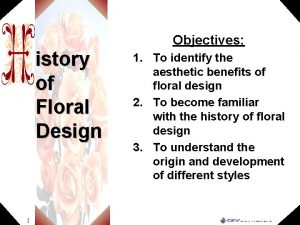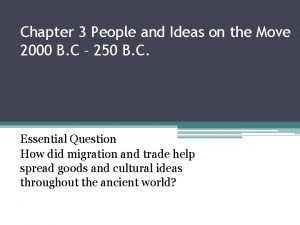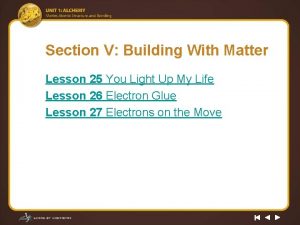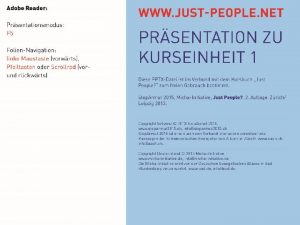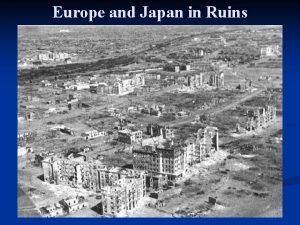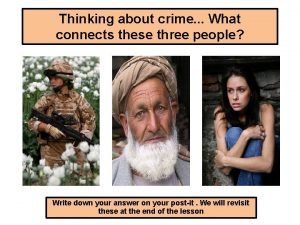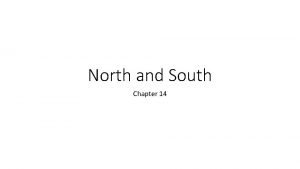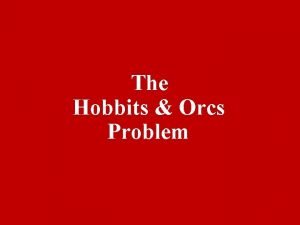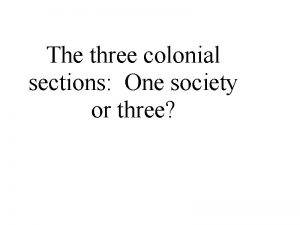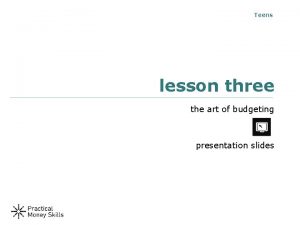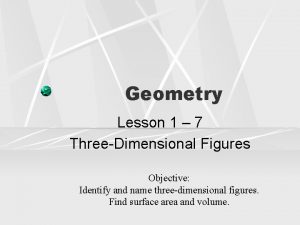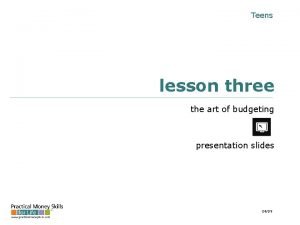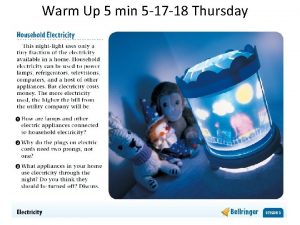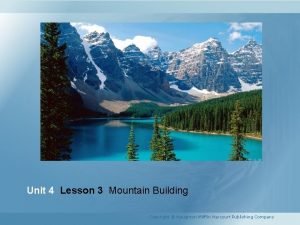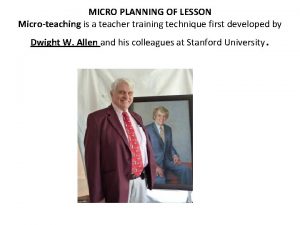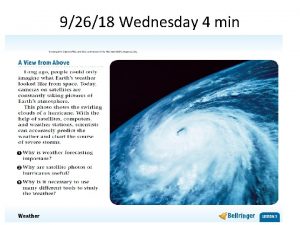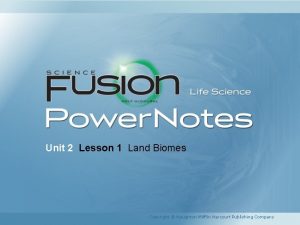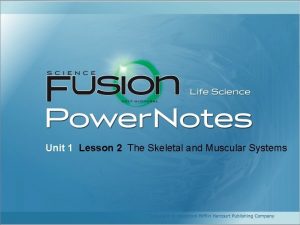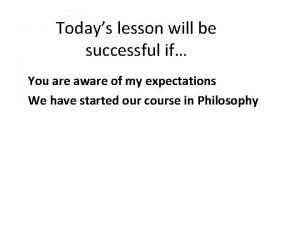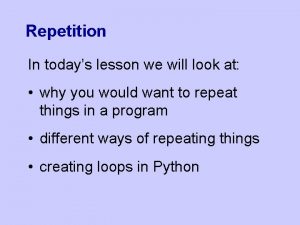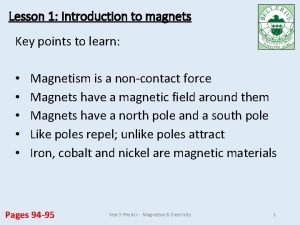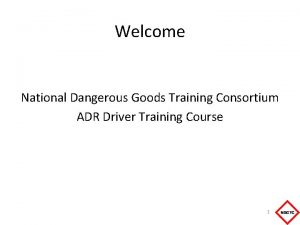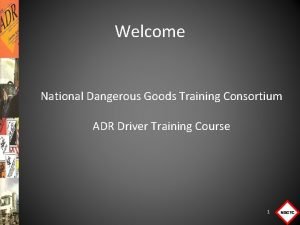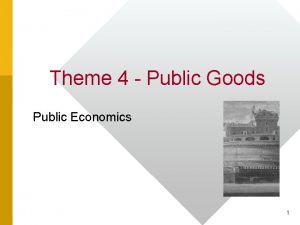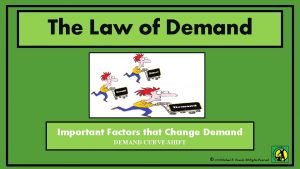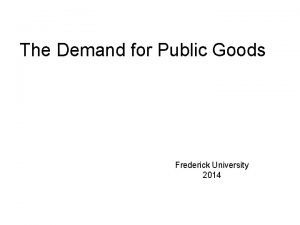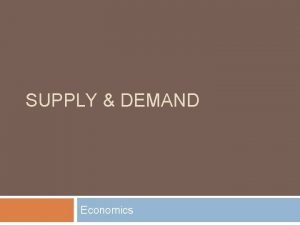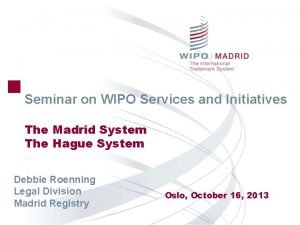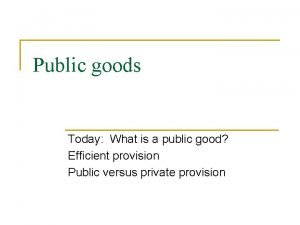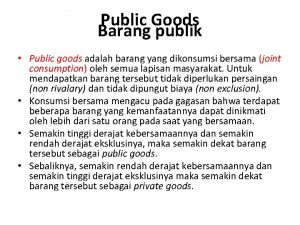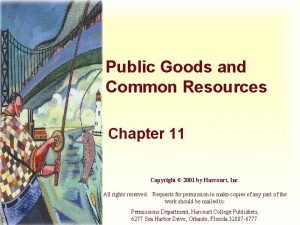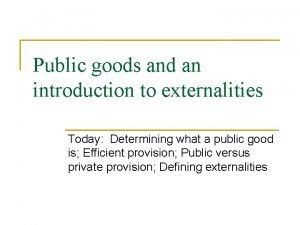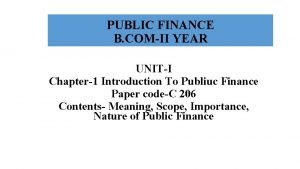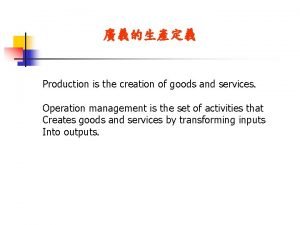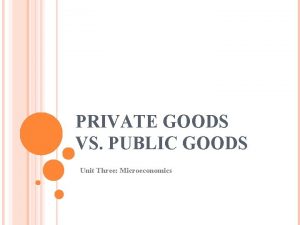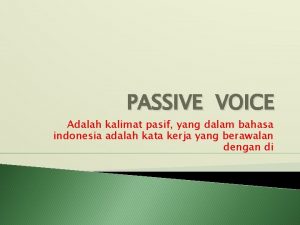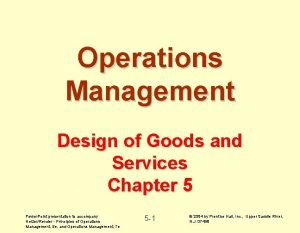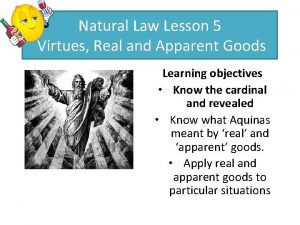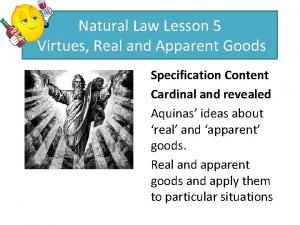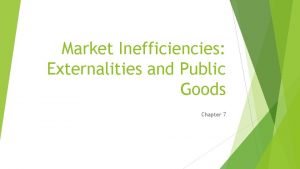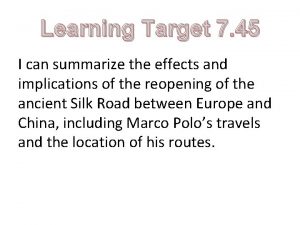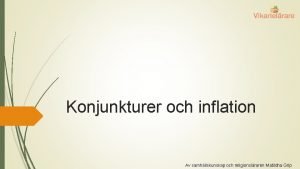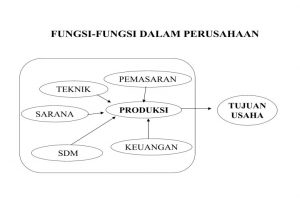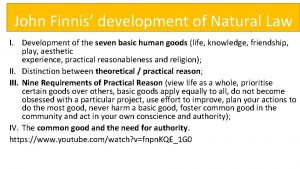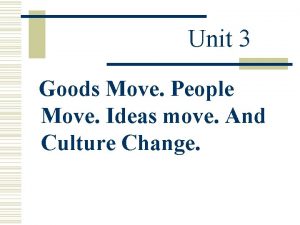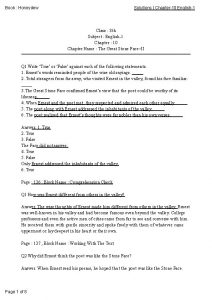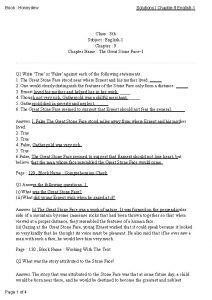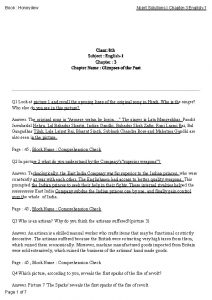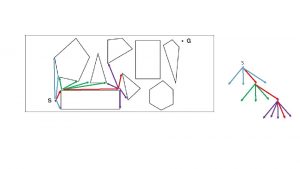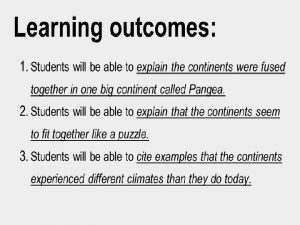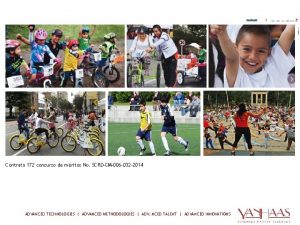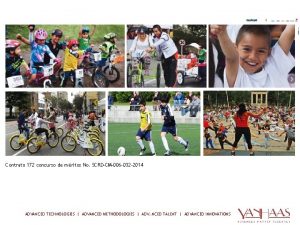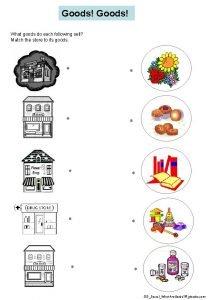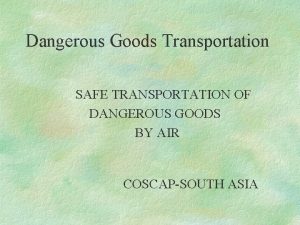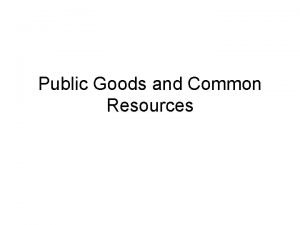Advanced English1 Lesson Three Goods Move People Move



























































































- Slides: 91

Advanced English(1)

Lesson Three Goods Move. People Move. Ideas Move. And Cultures Change. ——Erla Zwingle

Contents About the author About globalization Organization of the text Detailed study of the text

About the author Born in Kansas City, Missouri Once lived in New York City and Washington, DC Have been living in Venice for more than 10 years Former National Geographic editor A freelance journalist now Erla Zwingle

About the author Erla Zwingle Like meeting people and learning new things Having studied languages (French, Russian, Italian) Having studied English literature, American history and art history Having written extensive about Venice

About globalization Definition: A process of making something worldwide in scope, and consequently promoting a worldwide contacts and exchanges in general. This process has speeded up dramatically in the last two decades as technological advances make it easier for people to travel, communicate, and do business internationally.


About globalization Effects of Globalization Industrial: emergence of worldwide production markets and broader access to a range of foreign products for consumers and companies. Financial: emergence of worldwide financial markets and better access to external financing for corporate, national and subnational borrowers.

Economic: realization of a global common market, based on the freedom of exchange of goods and capital. Political: creation of a world government which regulates the relationships among nations and guarantees the rights arising from social and economic globalization.

Informational: increase in information flows between geographically remote locations. Cultural: growth of cross-cultural contacts; advent of new categories of consciousness and identities. Ecological: the advent of global environmental challenges that can not be solved without international cooperation. Social: increased circulation by people of all nations with fewer restrictions.

Transportation: fewer and fewer European cars on European roads. International cultural exchange • - Greater international travel and tourism • - Greater immigration, including illegal immigration • - Spread of local consumer products (e. g. food) to other countries (often adapted to their culture)

• - World-wide fads and pop culture such as Pokémon, Sudoku, Numa, Origami, Idol series, You. Tube, Orkut, Facebook, and My Space. • - World-wide sporting events such as FIFA World Cup and the Olympic Games. Formation or development of a set of universal values

Technical: development of a global telecommunications infrastructure and greater transborder data flow. Legal/Ethical: the push by many advocates for an international criminal court and international justice movements. Sexual awareness: having social effects which bring about such changes in sexual inequality.

Negative effects of globalization Sweatshops 血汗 厂 Brain drain 人才流失 Environmental degradation 环境恶化 Food security 食品安全 Disease 疾病 Drug and illicit goods trade 毒品及非法物资贸 易

Proponents for globalization: free trade →leading to a more efficient allocation of resources; lower prices; more employment; higher output a higher standard of living for those in developing countries. higher degrees of political and economic freedom in the form of democracy and capitalism

Critics to globalizaiton: Poorer countries suffering disadvantages The exploitation of foreign impoverished workers The shift to outsourcing Weak labor unions An increase in exploitation of child labor

Organization of the text n. Part I (Paras. 1 -3): Globalization is a reality but not something completely new. What is new is the speed and scope of changes. n. Part II (Paras. 4 -6): deals with different views on globalization.

Organization of the text n. Part III (Paras. 7 -9): three points • a) Westernization is not a straight road to hell, or to paradise either. • b)Cultures are as resourceful, resilient, and unpredictable as the people who compose them. • c) Teenagers are one of the powerful engines of merging global cultures.

Organization of the text n. Part IV (Paras. 10 -13): the author’s experience with Amanda Freeman, a cool hunter. n. Part V (Paras. 14 -19): in order to prove fusion is the trend, the author used Tom Sloper and mahjongg as an example.

Organization of the text n. Part VI (Para. 20): a transition from the West to China n. Part VII (Paras. 21 -24): this part describes the cultural trends in Shanghai.

Organization of the text n. Part VIII (Paras. 25 -28): the author used the experience at Shanghai Theatre Academy to illustrate the point that the change is at the level of ideas. n. Part IX (Paras. 29 -34): the author introduced Toffler’s view on conflict, change and world order.

Organization of the text n. Part X (Paras. 35 -36): there will not be a uniform world culture in the future; the cultures will coexist and transform each other. n. Part XI (Paras. 37 -39): the author again used an example in Shanghai to illustrate the transformation of culture. n. Part XII (Para. 40): Globalization is inevitable because linking is humanity’s natural impulse, its common destiny.

Detailed study of the text Part I (Paras. 1 -3) words and phrases: • in the throes of: in the act of struggling with • tectonic: structural • assortment: collection; variety • dislodge: drive out • clime: region • venture: to undertake the risk of

Part i (Paras. 1 -3) • • afield: away (from home) wrought (the past tense and past participle of "work"): to produce results or exert an influence • intricate: complicated; puzzling • knot: string, rope twisted together; difficulty; hard problem • accelerate: speed up • dynamic: a force producing a motion or change

Part I (Paras. 1 -3) n “In place of the old wants we find new wants, requiring for their satisfaction the products of distant lands and climes. ” (para. 1) Ø Human beings have endless desires and needs. After the old needs are satisfied, new ones come into being. And in order to meet these new needs, we demand goods from distant and far-off places.

Part I (Paras. 1 -3) n Why does the author quote Marx and Engels in para. 1 ? Ø reasons: She thinks globalization is not an exact word. Globalization is not a new thing, and it is the result of modern industry.

Part I (Paras. 1 -3) n “How people feel about this depends a great deal on where they live and how much money they have. ” (para. 2) Ø People’s attitude towards globalization is to a great extent determined by whether they are in the developed countries or not and whether they are among the haves or the have-nots.

Part I (Paras. 1 -3) n Yet globalization, as one reporter stated, “is a reality, not a choice. ” (para. 2) Ø Globalization is not something you can accept or reject; it is a matter of life that you will encounter and have to respond to every day.

Part I (Paras. 1 -3) n “Telegraph, telephone, radio, and television tied tighter and more intricate knots between individuals and the wider world. ” (para. 2) Ø Telegraph, . . . made the connection between individuals and the outside world closer but at the same time the connection was more complex, less direct, not easy to detect.

Part I (Paras. 1 -3) n What are the historical events that the author mentions to argue for the point that globalization is a reality?

Part I (Paras. 1 -3) 2 th century BC Long before the first camel caravan ventured afield, humans have been weaving commercial and cultural connections; 19 th century The development of transportations and communications tied tighter and more intricate knots between. . . Now The birth of computers, . . . Have accelerated and complicated these connections.

Part II (Paras. 4 -6) words and phrases: • clone: produce non-sexually from one ancestor • assault: violent and sudden attack • agenda: program of things to be done • equate. . . with: consider (one thing as being equal) • flatten: make flat

Part II (Paras. 4 -6) • crease: a fold or wrinkle • faction: discontented, often unscrupulous and selfinterested political group 派系,派别 • sprout: begin to grow or appear • xenophobia: fear of foreigners or foreign things

Part II (Paras. 4 -6) n ". . . Western – often equated with American – influences will flatten every cultural crease, producing, as one observer terms it, one big 'Mc. World'. " (para. 4) cultural crease: cultural diversities Mc. World: a world filled with American goods and culture Ø Western influences will overwhelm all other non. Western cultures, making them lose their own unique characteristics, and in the end there exists only one Westernized or Americanized culture.

Part II (Paras. 4 -6) n "Popular factions sprout to explore nationalist anxieties. " (para. 5) Ø Political groups that have broad support have come into being to take advantage of / make use of existing worries of the people who are afraid of foreign cultural assault.

Part II (Paras. 4 -6) n "In China, where xenophobia and economic ambition have often struggled for the upper hand. " (para. 5) Ø In China there are two trends, one is fear of foreign things (closed-door) and the other is the desire to build China into an industrialized country (opendoor). The two trends have long been struggling for dominance.

Part II (Paras. 4 -6) n "Those people out there should continue to live in a museum while we will have showers that work. " (para. 5) museum: backwardness, the kind of life you can only find in museums now showers that work: modern life high-tech gadgets Ø The Chinese people should continue to live a backward life while the westerners live comfortably with all modern conveniences.

Part II (Paras. 4 -6) Questions to discuss: • Why are some people not happy with globalization? • What are the instances of cultural assault? • Why did the book China Can Say No become a bestseller? • How does James Watson think of globalization? • What is the central idea of this part?

Part III (Paras. 7 -9) words and phrases: • bedfellow: an associate, ally • blast: attack or criticize sharply • booster: enthusiastic supporter (boost: promote) • salubrious: healthful • resourceful: quick at finding ways of doing things 随 机应变的 • resilient: recovering strength, spirits quickly; buoyant • ostensible: apparent

Part III (Paras. 7 -9) • fountainhead: source, origin • orthodox: more traditional • mass: a large number (cf. mess) • hang out: to visit a place often • spring from: arise/come from • spring up: appear; grow up quickly • take sb in hand: control sb as to show him how to act

Part III (Paras. 7 -9) n “Westernization, . . . is a phenomenon shot through with inconsistencies and populated by very strange bedfellows. ” (para. 7) shot through with: full of (holes after a shotgun blast) populated by: supported by, held by Ø Westernization is a concept full of self-contradiction and held by people of very different backgrounds or views.

Part III (Paras. 7 -9) n “Apparently westernization is not a straight road to hell, or to paradise either. ” (para. 7) Ø Westernization is neither terribly bad nor extremely good.

Part III (Paras. 7 -9) n “The critical mass of teenagers. . . is one of the powerful engines of merging global cultures. ” (para. 9) engine: sth. powerful that causes great changes in society Ø The large number of teenagers, which is decisive, is one of the great forces that generate / cause the cultural globalization.

Part III (Paras. 7 -9) Questions: n Why are teenagers are critical? - their number is huge; - they have time (to hang out) and money to spend (to travel and buy stuff).

Part III (Paras. 7 -9) n Why does the author say that the mass of teenagers is one of the engines of merging global cultures? Ø Reason: Kids are the source of fashion and fashion knows no national boundaries. The fashion in one culture can be easily picked up by teenagers in other cultures. The spread of rap music is a case in point.

Part IV (Paras. 10 -13) words and phrases: • diner: small restaurant • seedy: shabby • pocket: an isolated area of a specified type • trendy: ultrafashionable • catch on: become popular • come up with: produce; find

Part IV (Paras. 10 -13) • thrift shop: a shop selling second-hand items usu. for charity • punk: a type of loud music popular in the late 1970 s and 1980 s. • mix: to show a combining of things so that the resulting substance is uniform in composition whether or not the separate elements can be distinguished. eg. He ~ed blue with yellow paint to produce the green color.

Part IV (Paras. 10 -13) • fuse : to unite by melting together into sth indissoluble eg. Several metals such as copper, lead, iron are fused into coins of different sizes. • blend: to imply a mixing of different varieties to produce a desired quality. Eg. To ~ modern and medieval architecture

Part IV (Paras. 10 -13) n "She has shoulder-length brown hair and is wearing a knee-length brocade skirt. " (para. 10) Ø 她留着披肩的棕发,穿着一条长及膝盖的织锦短裙。

Part IV (Paras. 10 -13) n “. . . you don’t have to be cool to do it, . . . You just have to have the eye. ” (para. 10) Ø In trying to find out what will be the future trend, you do not need to be fashionable yourself. All you need is awareness, that is to say, you need to be on the alert, to be observable.


Part IV (Paras. 10 -13) n “If it’s not going to be affordable, . . . it’s never going to catch on. ” (para. 11) Ø If the trend is too expensive and cannot be followed by people, it will not become popular.


Part V (Paras. 14 -19) words and phrases: morph: turn into a variant form fanatic: a person filled with excessive enthusiasm chunky: short and thick

Part V (Paras. 14 -19) n “This being America, he has found a way to marry these two passions and sell the result. ” (para. 14) This being America: absolute construction, playing the role of an adverbial clause of cause marry: (metaphorically) to combine (a metaphor) Ø America is an open and technologically advanced country with a large market for unusual things.

Part V (Paras. 14 -19) n “. . . and it is still played all over Asia in small rooms that are full of smoke and. . . It is also played by rich society women at country clubs in Beverly Hills and in apartments on Manhattan’s Upper West Side. ” (para. 14) Ø This sentence shows the sharp contrast between the lower class people in Asia and the upper class people in America.

Part V (Paras. 14 -19) n “. . . he told me with that detached friendliness of those whose true connection is with machines. ” (para. 16) -detached: not involved by emotion, interests Ø. . . he told me in a friendly way, but this friendliness lacks emotion because his interest is in the computer, in those people who are connected with him through the Internet.

Part V (Paras. 14 -19) n “He, an American playing a Chinese game with people in Germany, . . . was up in the cybersphere far above the level of time zones. ” (para. 19) Ø He was roaming in the cyber world, playing games with people living in different time zones, thus their activity on the computer broke down time zone limit.

Part V (Paras. 14 -19) Question: n What sort of person is Tom Sloper? What did he design to combine his two interests? And what does his design imply? - His design combines computer, the Western high technology, and mah-jongg, the traditional Chinese game. This represents a fusion of East and West, of technology and entertainment, a fusion of things that were previously unrelated.

Part VI (Para. 20) words and phrase: • • fast-forward:快进 blur: unclear effect unleash: release plunge: vi. Decrease/drop/fall suddenly and quickly 暴跌,骤降 eg: 1) Sales ~d by 20 %. 2) The temperature ~d below freezing. 3) plunging neckline=plunge neckline 低领 • neckline:领口,开领

Part VI (Para. 20) n “If it seems that life in the West has become a fastforward blur, consider China. ” Ø Life in the West is moving so fast into the future that outlines are blurred as if images of a video tape being played on fast forward. Ø 如果说西方的生活太超前了,已经看不太清轮廓 了,那么就看看中国。

Part VI (Para. 20) n “The Cosmopolitan, plunging necklines and all, is read by 260, 000 Chinese women every month. ” Ø The Cosmopolitan, a fashion magazine with pages showing low necklines and other content, is read by. . . Ø 26万中国妇女每个月都在阅读《时尚》杂志,那 些开领坦胸的画页及其他内容。

Part VI (Para. 20) Questions: n What unleashed market forces in China in 1980 s? n What examples are presented to prove that the life for many urban Chinese has changed drastically? n What is the role of this para. ?

Part VII (Paras. 21 -24) words and phrases: • show up: be conspicuous • populous: thickly populated • rip: tear • jostle: come into close contact • cramp: confine, restrain • choke: block or fill

Part VII (Paras. 21 -24) • overpass : bridge or road that carries a road over a highway or motorway天桥,高架道路 • boutique:small shops selling articles of the latest fashion • dislocation: disruption • ambiguity: the quality of allowing more than one interpretations

Part VII (Paras. 21 -24) n “ In a decade scores of gleaming new skyscrapers have shot up to crowd and jostle the skyline, cramp the narrow winding streets, and choke the parks and open spaces with their sheer soaring presence. ” (para. 22) Ø paraphrase?

Part VII (Paras. 21 -24) paraphrase: Ø Everywhere there are soaring skyscrapers, surrounding the open spaces and making the streets even narrower. As a result, when you look out, you can only see these tall buildings one after another and the vision is lost.

Part VII (Paras. 21 -24) n “ In a decade scores of gleaming new skyscrapers have shot up to crowd and jostle the skyline, cramp the narrow winding streets, and choke the parks and open spaces with their sheer soaring presence. ” Ø 十年中几十座闪闪发亮的新的高层建筑拔地而起, 挤压空间,使人张目不能远眺,使原本狭窄弯曲 的街道更嫌压抑,而这些高耸大楼的存在也使公 园和空地感到憋气。

Part VII (Paras. 21 -24) n “In it’s first two weeks of business the Gucci Store took in a surprising $100, 000. ” (para. 22) Ø In it’s first two weeks of business the Gucci Store made a profit of $100, 000, which they didn’t expect.

Part VII (Paras. 21 -24) n “The Chinese are very good at dealing with ambiguity. ” (para. 24) Ø The Chinese are open-minded and allow more than one possibility of life.

Part VIII (Paras. 25 -28) words and phrases: • otherwise: in other respects • snarl: speak angrily • shriek: scream • auto-rewind自动倒卷/带 • It strains imagination that: It is beyond imagination that

Part VIII (Paras. 25 -28) n “Potential: This is largely a Western concept. ” (para. 25) - Potential is a concept used in physics or electricity which are subjects first studied in the West. - Now it is a good word to describe the changes happening in China.

Part VIII (Paras. 25 -28) n “. . . and it’s clear that the truly great leap forward here is at the level of ideas. ” (para. 25) Ø. . . and it’s clear that the real progress that matters most lies in the change of ideas.

Part VIII (Paras. 25 -28) n “It strained imagination that this could be the same country where a generation ago the three most desired luxury items were wristwatches, bicycles, and sewing machines. ” (para. 28) - It was beyond/hard to imagine that. . . -难以想象就是在这个国家,二十年前人们最想要的 三样贵重物品是手表、自行车、缝纫机。


Part VIII (Paras. 25 -28) Question: n Why does the author mention the three luxury items when she talks about the progress at the level of idea?

Part VIII (Paras. 25 -28) reasons: - Chinese people have developed from the material pursuit to the spiritual pursuit, from the level of materialism to the level of ideology. - a sharp contrast between the old China and the new China, to show the development potential of China.

Part IX (Paras. 29 -34) words and phrases: • wilds: wasteland • chaos: confusion • agrarian: of farmland; agricultural • outnumber: be greater in number than • trisection: three section • collide: meet and strike; be in conflict • foster: help the growth and development of

Part IX (Paras. 29 -34) n “. . . I was going to need some type of compass to guide me through the wilds of global culture. ” (para. 29) - compass: metaphor, guideline Ø. . . I need some guideline to help me in my study of such a variety of cultural phenomena.

Part IX (Paras. 29 -34) n “We now know that order grows out of chaos, . . . You cannot have significant change, especially on the scale of Russia or China, without conflict. ” (para. 30) - order grows out of disorder; Ø In such countries as Russia and China, which have large population and long history, it is impossible to have significant changes without causing any conflicts.

Part IX (Paras. 29 -34) n “But you’ll be the Chinese of the future, not of the past. ” (para. 34) Ø The Chinese culture in the new age cannot be the same as the culture in Confucius times.

Part IX (Paras. 29 -34) Question: n What is the important question we have to ask in such an age of globalization? - How to keep up with the development of the world, but still maintain the characteristics of our national cultures.

Part X (Paras. 35 -36) words and phrases: • implicit: implied though not plainly expressed • aspire to: be ambitious to get/do sth lofty

Part X (Paras. 35 -36) n “. . . rather than aspire to some utopian ideal, a society should strive for something else: not that we agree with each other, . . . but that we can understand each other. ” (para. 36) Ø A society shouldn’t pursue unrealistic goal, but should aim at achieving something more practical; we shouldn’t pursue uniformity, but we should cultivate tolerance towards diversity.

Part XI (Paras. 37 -39) words and phrases: • sterile: free from living germs • preside over: be the head or director of • infant: in a very early stage • congregation: an assembly of people for religious worship or teaching

Part XI (Paras. 37 -39) • liturgy: prescribed forms for public worship in religion 礼拜仪式 • intone: recite in a singing tone 吟诵 • penitence: sorrow over having sinned 悔罪 • aspiration: desire • universal: belonging to, done by, all

Part XI (Paras. 37 -39) n “The penitence may have been Jewish, but the aspiration was universal. ” (para. 39) Ø The way of showing penitence might be peculiar to the Jews, but the strong desire of gaining forgiveness of God is common, shared by all.

Part XII (Para. 40) words and phrases: • impulse: desire; impetus; sudden inclination to act without thought about the consequences • cord: tie

Part XII (Para. 40) n “Linking is humanity’s natural impulse, its common destiny. ” Ø 相互联系是人类自然的欲望,是其共同的命运。 n “They are the powerful cords of the heart. ” Ø 这种连接靠的是强有力的心灵的纽带。

Part XII (Para. 40) Question: n What is the author’s conclusion? 1) Linking is a natural human desire; 2) A coexistence of diverse cultures is not brought about just by technology or business, but more importantly by human beings’ common aspiration and shared values

 Product classifications
Product classifications Examples of progressive tax
Examples of progressive tax Merit good vs public good
Merit good vs public good Publik goods
Publik goods What has roads but no cars rivers but no water
What has roads but no cars rivers but no water Flemish floral design
Flemish floral design People and ideas on the move
People and ideas on the move Lesson 27 electrons on the move answers
Lesson 27 electrons on the move answers People of media
People of media Black eyed peas
Black eyed peas Transformed people transform people
Transformed people transform people People just people
People just people Note three ways u.s. occupation changed japan.
Note three ways u.s. occupation changed japan. How many different three-letter initials can people have?
How many different three-letter initials can people have? A small group usually has between three and twenty people.
A small group usually has between three and twenty people. These three people
These three people Chapter 14 lesson 1 the industrial north
Chapter 14 lesson 1 the industrial north Hobbits and orcs problem
Hobbits and orcs problem Othello act 3 summary
Othello act 3 summary In three minutes write three things you did yesterday
In three minutes write three things you did yesterday Purpose of traffic signs
Purpose of traffic signs The three colonial sections-one society or three
The three colonial sections-one society or three Three address code
Three address code Lesson three the art of budgeting
Lesson three the art of budgeting Lesson 7 three dimensional figures
Lesson 7 three dimensional figures 3 branches of government rap
3 branches of government rap Ac systems lesson 4
Ac systems lesson 4 Lesson 2 the three branches of government
Lesson 2 the three branches of government The three wishes folktale
The three wishes folktale Lesson three the art of budgeting
Lesson three the art of budgeting Lesson outline lesson 3 describing circuits answers
Lesson outline lesson 3 describing circuits answers Lesson outline lesson 3 mountain building answers
Lesson outline lesson 3 mountain building answers Lesson outline lesson 2 aquatic ecosystems answer key
Lesson outline lesson 2 aquatic ecosystems answer key Define micro-lesson
Define micro-lesson Post-lesson assessment: l 101 lesson 1
Post-lesson assessment: l 101 lesson 1 Describe the beggar of a gift of chappals
Describe the beggar of a gift of chappals Chapter 1 lesson 1 your total health lesson 1 quiz
Chapter 1 lesson 1 your total health lesson 1 quiz Lesson outline lesson 3 answer key
Lesson outline lesson 3 answer key Sat vocabulary lesson and practice lesson 4
Sat vocabulary lesson and practice lesson 4 Lesson 2 physical properties answer key
Lesson 2 physical properties answer key The science duo physical and chemical changes
The science duo physical and chemical changes Unit 6 lesson 1 climates of the world
Unit 6 lesson 1 climates of the world Lesson outline lesson 2
Lesson outline lesson 2 Understanding science worksheet answers lesson 1
Understanding science worksheet answers lesson 1 Today lesson or today's lesson
Today lesson or today's lesson Biome
Biome Lesson 4 gravity and motion lesson review
Lesson 4 gravity and motion lesson review Lesson 2 muscle storyboard
Lesson 2 muscle storyboard Lesson outline lesson 2 wave properties answer key
Lesson outline lesson 2 wave properties answer key Today's lesson or today lesson
Today's lesson or today lesson 1 important lesson that is worth sharing about this lesson
1 important lesson that is worth sharing about this lesson Example of repitition
Example of repitition Scrap heap magnet circuit diagram
Scrap heap magnet circuit diagram The sun-earth-moon system worksheet answers lesson 1
The sun-earth-moon system worksheet answers lesson 1 Dangerous goods consortium
Dangerous goods consortium National dangerous goods training consortium
National dangerous goods training consortium Cern goods reception
Cern goods reception Entertainment goods
Entertainment goods Trans-saharan trade route
Trans-saharan trade route Congestible public goods
Congestible public goods You shall not covet your neighbor’s goods
You shall not covet your neighbor’s goods Free rider database
Free rider database Demand for complementary goods
Demand for complementary goods Public goods demand curve
Public goods demand curve 5 determinants of supply
5 determinants of supply Madrid goods and services manager
Madrid goods and services manager Sale of goods and supply of services act 1980
Sale of goods and supply of services act 1980 Noteworthy characteristics example
Noteworthy characteristics example Exclusive goods meaning
Exclusive goods meaning Pure public goods
Pure public goods Toll goods adalah
Toll goods adalah Ucommon goods
Ucommon goods Nonrival nonexcludable
Nonrival nonexcludable Public finance definition
Public finance definition Creation of goods and services
Creation of goods and services Marketing goods and services
Marketing goods and services Public and private goods
Public and private goods Pedi-cat assessment
Pedi-cat assessment The court will try the case next week passive voice
The court will try the case next week passive voice Chapter 5 design of goods and services
Chapter 5 design of goods and services Example of apparent good in ethics
Example of apparent good in ethics Apparent good examples
Apparent good examples Product service mix
Product service mix Pure competition
Pure competition Club goods
Club goods Cost of goods manufactured formula
Cost of goods manufactured formula Silk road goods traded
Silk road goods traded Högkonjuktur inflation
Högkonjuktur inflation Staples goods adalah
Staples goods adalah John finnis 7 basic goods
John finnis 7 basic goods Product quality characteristics
Product quality characteristics Toll goods adalah
Toll goods adalah





